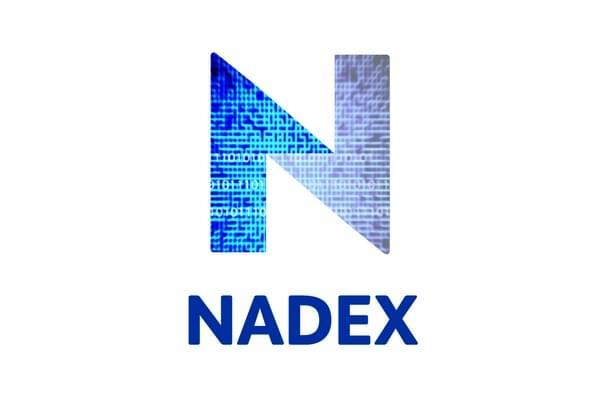
These traditional financial instruments also have a history to them from which the SEC has drawn very effective policies to protect investors. Crypto ETFs work exactly like any other traditional asset-backed ETF. You do not have to understand blockchain and cryptocurrencies to take advantage of the crypto market’s volatility. Although, it does help to learn about the markets in which you want to invest. A Bitcoin ETF is a tradable instrument that tracks the value of Bitcoin. The Bitcoin ETF can and is often listed on traditional exchanges where the ETF can be bought and sold, similar to equity stocks.
Get stock recommendations, portfolio guidance, and more from The Motley Fool’s premium services. Investing in virtual currency has produced jaw-dropping returns for some, but the field still presents risks. Although many in the crypto community believe BlackRock’s spot Bitcoin trust will be a de facto Bitcoin ETF, there are significant differences between the two options. Crucially, these other crypto industry players have also proposed solutions to the SEC’s concerns.
ETF Fund Flows
The CME is regulated by the Commodity Futures Trading Commission (CFTC), making any futures on it palatable to the SEC in a Bitcoin-based ETF. At least ten bitcoin EFT applications have been rejected since 2017. Things then took a dramatic turn in August 2021, when the current SEC Chairman Gary Gensler voiced his approval for ETFs that looked at bitcoin futures instead of holding the actual crypto itself. ETFs are usually cheaper than mutual funds since they are passive index-tracking funds. As a result, they allow investors – even private investors – to access asset classes and niche markets where it would otherwise be difficult to invest.
Bitcoin ETF is Inevitable Says Former SEC Chairman – Crypto Briefing
Bitcoin ETF is Inevitable Says Former SEC Chairman.
Posted: Mon, 04 Sep 2023 18:45:24 GMT [source]
Index information does not reflect any management fees, transaction costs or expenses. Indexes are unmanaged and one cannot invest directly in an index. “The only reason a crypto-minded investor would invest into an ETF is convenience,” he said. So, in that respect, Luria’s not a fan of buying something indirectly what you can purchase directly. That is not to say that there isn’t appetite for bitcoin in an ETF wrapper.
History of Bitcoin ETFs in the United States
The Bitwise 10 Crypto Index Fund is another investment fund that trades over-the-counter like Grayscale’s Bitcoin offering, but with a twist. The fund invests in the top 10 cryptocurrencies weighted by market cap and is rebalanced monthly. Given Bitcoin’s size and lead, it makes up 60% of the underlying portfolio as of this writing, with Ethereum comprising another 28%, and the next eight cryptos by size making up the balance. As with other ETFs on this list, since the Grayscale Bitcoin Trust isn’t a direct investment in Bitcoin itself, units of the fund can trade at a steep discount or premium to the actual Bitcoin price. When shares are in high demand, units will tend to trade at a premium to the underlying Bitcoin owned by the trust, and units will trade at a discount to Bitcoin when demand is low. Additionally, because Grayscale Bitcoin Trust charges a 2% annualized fee ($20 for every $1,000 invested each year), it will tend to underperform Bitcoin’s price action over time.
- We believe everyone should be able to make financial decisions with confidence.
- Most Bitcoin ETFs use futures to mimic the performance of the cryptocurrency.
- Another advantage of Bitcoin futures ETFs is that, because the price is agreed upon in advance, there are no concerns about volatility.
- They simply get into a contract to buy or sell at a specified date in the future.
Even as digital coins and tokens become increasingly popular, they are becoming more complex. One of the most significant obstacles for average investors is price. Bitcoin (BTC) set a record high of close to $69,000 per BTC shortly after the Proshares Bitcoin ETF was listed on the NYSE. Over the new few months, its price began to drop, hitting close to $35,000. So, even at low prices, retail investors may not have the assets to purchase 1 BTC. An ETF allows you to gain exposure to BTC within your budget, risk tolerance, and investing goals.
Frequently Asked Questions about Bitcoin ETFs
If you buy and sell ETFs through your traditional brokerage, those sales should get rolled into the rest of your trading activity for the year. Many people who have access to a retail brokerage probably already have access to Bitcoin ETFs. In contrast, investing in Bitcoin itself at minimum requires setting up an account with a crypto brokerage, and perhaps looking into wallets for storage, too.
Bitcoin ETF Approval Will Impact Cryptocurrency Exchanges – BeInCrypto
Bitcoin ETF Approval Will Impact Cryptocurrency Exchanges.
Posted: Tue, 05 Sep 2023 07:45:15 GMT [source]
Securities and Exchange Commission (SEC) has proven challenging, with over a dozen applications and proposals rejected over the past few years. A futures contract ETF will not directly track the value of bitcoin, unlike Bill williams trader a spot ETF. But the futures contract will still be influenced by fluctuations in the value of bitcoin. That same week, the second bitcoin futures ETF – the Valkyrie Bitcoin Strategy Fund (BTF) – had a low-key launch.
Coinbase Global
The cryptocurrency has futures and spot ETFs that help investors gain exposure to Bitcoin price movements without owning and managing the asset or any decentralized finance aspects like crypto wallets. While ETFs track the price of an underlying asset, they can also have multiple holdings in a bid to diversify the portfolio. However, this suggests that a 50% rise in the price of Bitcoin may not be accurately reflected in the value of the exchange-traded fund due to its other holdings. Therefore, while an ETF provides leverage to Bitcoin’s price, it may or may not be an accurate tracker of its price.
ETFs usually charge management fees for the convenience they provide. Therefore, owning a significant amount of shares in a Bitcoin ETF could lead to high management https://investmentsanalysis.info/ fees over time. GBTC has been trading at a discount to bitcoin partly because investors are selling out of the product to make room for ETFs like ProShares.
Bitcoin ETFs List
A bitcoin exchange-traded fund (ETF) tracks the value of bitcoin. ETFs can be bought, sold and traded on traditional stock market exchanges instead of cryptocurrency trading platforms. It is a solid way to give mainstream investors and speculators bitcoin price exposure through a reliable vehicle with which they are likely already familiar. However, as the ETF would closely track the price of bitcoin, for the investor, it should make little difference whether they are holding a bitcoin ETF or the actual digital currency. The main difference between buying a bitcoin ETF versus bitcoin itself is that investors are purchasing a regulated investment vehicle, instead of buying and owning a crypto asset.

The first cryptocurrency ETF, the ProShares Bitcoin Strategy ETF (BITO), started trading in October 2021. As always, however, it must be kept in mind that past performance is no guarantee of future results. Tracking the price of Bitcoin doesn’t always replicate the performance of the underlying market, and there are extra costs as the managers roll forward the futures contracts they’re buying. Bitcoin exchange-traded funds offer exposure to the world’s most popular cryptocurrency with the ease of investing in an ETF.

